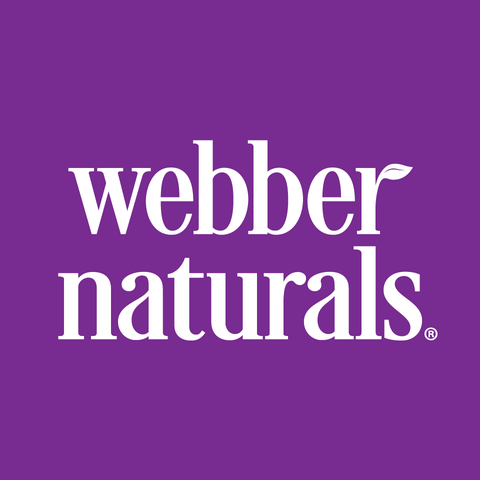Read Time: 6 min | Categories: Body Health
How To Choose The Best Collagen Supplement
Webber Naturals
Share this article
Collagen is one of those ingredients that promises to give us a crutch to stand on, to not change us drastically, but to help us look our best as we get older. Because of this, collagen supplements have exploded in popularity. For the past few years, retailers have been lining their shelves with a variety of collagen options – from powders and pills to gummies and drinks – making it confusing to pick what to buy. And to further complicate things, they’re not just offering collagen alone, but collagen combined with a variety of other beauty-enhancing nutrients, all of which claim to be the best.
So, how do you know which product to choose? This article will dive into what you should look for in a collagen supplement, as well as provide you with an easy guide for choosing the best product for your needs and goals.
Table of Contents
- 4 Key Ingredients to Look For
- Does Format Matter?
- The Difference Between Bovine and Marine Collagen
- The Collagen 30 Lineup
4 Key Ingredients to Look for in a Collagen Supplement
If you’re reading this article, chances are you’re interested in collagen supplements for your skin. But as mentioned in the outset, there are so many collagen products on the market, it can be difficult to know which one to choose.
Here’s a breakdown of four key skin-healthy ingredients to look for in a collagen supplement.
1. Bioactive hydrolyzed collagen peptides
When you take collagen supplements, always look for collagen that has been broken down or hydrolyzed into peptides, or short chains of amino acids. These peptides are more readily recognized by your body’s collagen factories, namely fibroblast cells, and serve to stimulate natural collagen production.
However, not all hydrolyzed collagen is created equal. Research shows that specially formulated collagen can provide significant skin improvements in a short period of time. So, what kind of collagen fits the bill? Several studies show that a specialized bioactive hydrolyzed collagen peptide formula, named Verisol®, can improve eye wrinkles and skin elasticity (your skin’s ability to stretch and snap back into shape) in fewer than 30 days. [1,2]
Along with Verisol, research studies show that another form of collagen, namely marine bioactive hydrolyzed collagen peptides (Collactive), has also been proven to reduce deep skin wrinkles in fewer than 30 days. [3]
Both Verisol and Collactive (found in Collagen 30® formulas) contain high amounts of glycine, lysine, and proline, which increase collagen production deep within the skin. Compared to generic hydrolyzed collagen, these forms offer superior absorption, and are therefore recommended at a lower dosage compared to most other brands. Specifically, 2–2.5 g per day is all that’s needed to see clinical benefits, compared to 10 g or more per day of the other leading brands (hello cost savings)!
2. Biotin
This essential B vitamin is required for a variety of biochemical processes that help break down food into usable energy. It helps form healthy skin cell membranes and the keratin structure in hair and nails. [4] As biotin functions by strengthening hair and nails, it’s the perfect complement to collagen.
3. Hyaluronic acid (HA)
This popular skincare nutrient can be seen in almost every topical skincare product on the shelves.But what about taking it in supplement form? Studies show that taking oral HA for 12 weeks may improve the skin’s condition by positively impacting wrinkles and skin moisturization. [5] Additionally, HA not only helps retain moisture in the skin, but it also retains moisture in connective tissue throughout the body, therefore acting as a lubricant and shock absorber within the joints. [6]
4. Ceramides
Found naturally in the uppermost layer of the skin, ceramides are known to lock in moisture between skin cells to help maintain hydration. These plant-sourced oils have been clinically proven to improve skin hydration and help prevent moisture loss. [7]
Does the Format Matter?
When it comes to the effectiveness of a collagen supplement, there is no difference between delivery forms. It really is a personal preference if you want to use a tablet, drink your collagen using a powdered source, or even enjoy a delicious gummy as long as you are able to follow the recommended dose and meet your daily needs.
Here are some pros and cons to help you choose which is best for you:

Thankfully, whether you choose tablets, capsules, powder, or gummies, there is no difference in terms of effectiveness; it really comes down to personal preference.
Is There a Difference Between Bovine and Marine Collagen?
The deciding factor comes down to personal preferences, dietary restrictions, and even health concerns like allergies. Marine collagen is smaller in size than bovine source, and therefore, may be slightly more bioavailable. However, both sources are rich in amino acids and have proven health benefits for skin and joint health.
The Collagen 30 Lineup
As there are a handful of products within the Collagen30 lineup, here is a simple guide on how to choose the best collagen based on your needs and goals.
| Product | Best for | Available in |
|---|---|---|
| Collagen30 | Improving eye wrinkles, deep wrinkles, and skin elasticity | Tablets Unflavoured powder Elderberry-flavoured gummies |
| Collagen30 with Biotin | Improving eye wrinkles, deep wrinkles, and skin elasticity Supporting stronger, thicker, healthier hair Strengthening nails |
Tablets |
| Collagen30 with Hyaluronic Acid | Improving eye wrinkles, deep wrinkles, and skin elasticity Improving skin hydration Supporting bone and joint health |
Tablets |
| Collagen30 with Ceramides | Improving eye wrinkles, deep wrinkles, and skin elasticity Preventing moisture loss and improving skin hydration |
Tablets |
| Marine Collagen30 | Improving eye wrinkles, deep wrinkles, and skin elasticity for people who follow a pescatarian diet | Vegetarian Capsules Unflavoured powder |
So now that you’re a savvy collagen critic, it’s time to take what you’ve learned and hit the shelves. To summarize, here are four important features to look for when purchasing collagen:
1. Look for clinically supported collagen such as Verisol or Collactive
2. Skip generic hydrolyzed collagen and go for bioactive collagen peptides to ensure optimal absorption
3. Look for a clean product that is free of dairy, sugar, wheat, gluten, yeast, soy, corn, egg, shellfish, tree nuts, and GMOs
4. Make sure your collagen comes from either grass-fed cattle, sustainably sourced, wild-caught fish.
Collagen30 products check off all the boxes for a collagen supplement worthy of consideration.
For more information, check out our posts on Considering Collagen? Get the Facts First and Do Collagen Supplements Work – Here’s What the Research Says.
